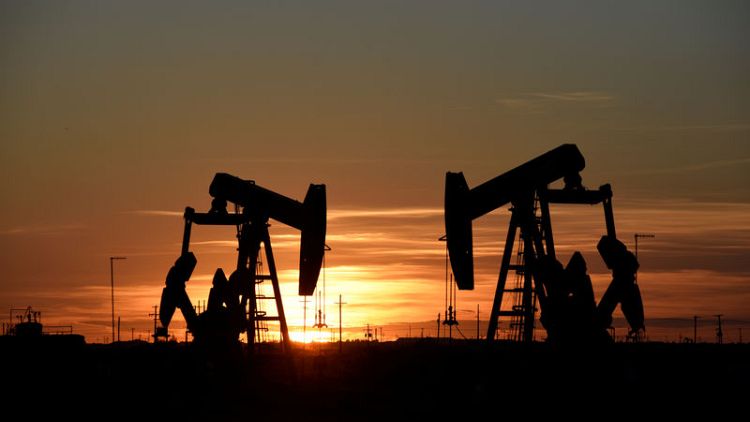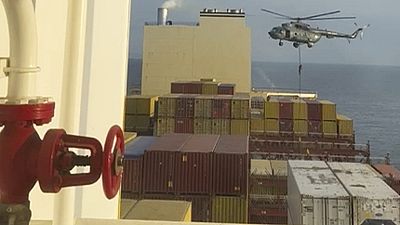By Ahmad Ghaddar
LONDON (Reuters) - Oil prices fell on Friday on fears trade disputes will dent global oil demand, although the attacks this week on two oil tankers in the Gulf of Oman gave prices a floor.
Brent crude futures were down 14 cents at $61.17 a barrel at 0846 GMT, having settled up 2.2% on Thursday.
U.S. West Texas Intermediate crude futures were down 28 cents at $52 a barrel. WTI also closed up 2.2% in the previous session.
Both contracts were on track for weekly declines of more than 3%.
The International Energy Agency cut its demand growth forecast for 2019 by 100,000 barrels per day (bpd) to 1.2 million bpd, due to worsening prospects for world trade.
But the Paris-based agency said demand growth would climb to 1.4 million bpd for 2020.
On Thursday, the Organization of the Petroleum Exporting Countries cut its 2019 forecast for growth in global oil demand even lower than the IEA, to 1.14 million bpd.
The attacks near Iran and the Strait of Hormuz pushed oil prices up as much as 4.5% on Thursday.
It was the second time in a month tankers have been attacked in the world's most important zone for oil supplies, amid rising tensions between the United States and Iran. Washington quickly blamed Iran for Thursday's attacks, but Tehran denied the allegation.
"Yesterday's attacks on the Japanese and Norwegian tankers in the Gulf of Oman underscore the severity of the security risks stemming from the Iran crisis and the difficulty of achieving a diplomatic off-ramp as long as the crippling U.S. sanctions remain in place," RBC bank said.
For a map on position of evacuated tankers in Gulf of Oman, click: https://tmsnrt.rs/2X6nIQF
Tensions in the Middle East have escalated since U.S. President Donald Trump withdrew from a 2015 multinational nuclear pact with Iran and reimposed sanctions, especially targeting Tehran's oil exports.
Iran, which has distanced itself from the previous attacks, has said it will not be cowed by what it calls psychological warfare.
U.S. Secretary of State Mike Pompeo said the United States has assessed Iran was behind the attacks on Thursday.
The U.S. military later released a video that it said showed Iran's Revolutionary Guard removing an unexploded mine from the side of a Japanese-owned oil tanker.
In a statement on Thursday evening, the Iranian mission to the United Nations said Tehran "categorically rejects the U.S. unfounded claim with regard to 13 June oil tanker incidents and condemns it in the strongest possible terms".
(Additional reporting by Aaron Sheldrick in Tokyo; Editing by Mark Potter)



